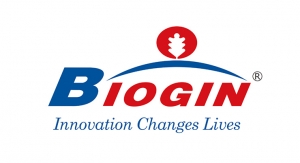By Erik Goldman, Holistic Primary Care12.01.22
With the release of its long-awaited Standard Operating Procedure for Disposal/Destruction of Irreparably Defective Articles at the 2023 SupplySide West trade show, the American Botanical Council’s Botanical Adulterants Prevention Program (BAPP) is taking a major step forward in its ongoing effort to rid the nutrition and herbal medicine industries of adulterated or otherwise fraudulent ingredients.
The “BAPP SOP” guidelines, as the new document is called, lays out specific contract terms between ingredient buyers and ingredient suppliers that will empower buyers to destroy—at the supplier’s expense—any botanical raw materials deemed “irreparably defective” by previously agreed-upon independent, accredited third-party analytical labs using validated techniques.
BAPP is a joint effort by the American Botanical Council, the American Herbal Pharmacopoeia, and the University of Mississippi’s National Center for Natural Products Research aimed at reducing the burden of contaminated and adulterated herbs in the global supply chain.
The FDA’s Good Manufacturing Practices (GMPs) for dietary supplements give clear definitions of what constitutes adulteration, and they require supplement makers to test for and prevent the sale of adulterated products. But the existing GMPs do not provide any guidelines for what to do with contaminated, adulterated, or misidentified raw materials if they are identified.
This gap put executives at ethical supplement brands in a difficult position: if their QA teams detect problematic ingredients, they could choose to destroy the materials at their own expense and then replace them, or they could return the tainted materials to the supplier for a refund or credit, knowing that the adulterated herbs would very likely end up in some other company’s products.
BAPP SOP lays out a pathway for supplement manufacturers to implement a strict “Burn it, don’t return it” policy for adulterated ingredients. If a supplier sells a batch of raw materials deemed by a third-party lab to be adulterated or contaminated, and the problem cannot be remedied, the contract terms would justify the destruction of the entire batch at the seller’s expense, and not return it into the stream of commerce.
The new guidelines define “irreparably defective materials” to include ingredients that contain environmental toxins, pesticide or herbicide residues, chemical or microbial contaminants, unlawful pharmaceutical ingredients, drug residues, illegal dyes, undisclosed fillers, or plant materials proven to be from species other than the desired and labeled species.
The BAPP SOP effort goes beyond simply educating the industry and the public about the problem by providing a set of tools that enable industry stakeholders to do something about it, said Mark Blumenthal, founder and executive director of the American Botanical Council, at the SupplySide West session formally launching the new guidelines.
“We believe the industry has a moral responsibility to get irreparably defective or adulterated material out of the supply chain. We have a responsibility to give people products that are ensured to work for their health,” Blumenthal said.
Between 35% and 45% of the herbs in the top-selling botanical categories are potentially subject to contamination or intentional adulteration, Blumenthal estimated. This includes Ginkgo, St. John’s Wort, elderberry, lavender, pomegranate, grape seed, bilberry, saw palmetto, mint, skullcap, and Cordyceps.
He stressed this does not mean all these herbs are always adulterated, or that the adulterations are necessarily dangerous. But it means that the risk is there.
The problem is especially prevalent for herbs that are rare, slow-growing, wild-crafted, or otherwise costly. And economically-motivated substitution of a cheap, potentially-less-effective filler herb for a more expensive one often increases when there is a sudden surge in demand.
This became a worldwide problem with elderberry in the wake of COVID. The pandemic triggered massive public interest in “immune system health,” and sales of elderberry products surged rapidly. The unprecedented demand put extreme strains on the supply of actual elderberry, and this led to an increase in substitution and mislabeling.
According to a March 2021 report from the BAPP team, 11% of 532 off-the-shelf “elderberry” products that were tested failed to meet identity specifications for elderberry. Many contained black rice (Oryza sativa) extract, a relatively inexpensive ingredient that contains some but not all of the anthocyanidins found in actual elderberry.
Another form of economically-motivated adulteration is the use of pharmaceutical ingredients to spike herbs for greater or faster effect, or the inclusion of synthetic ingredients in raw materials sold as entirely natural. This is a particular problem with herbal supplements for weight loss, performance enhancement, and sexual health (Kosalec, et al. Arch Industr Hygiene & Toxicol. 2009; Tripathy, et al. Phytochem Letters. 2015).
How widespread is intentional adulteration or substitution? It’s hard to say.
Back in 2013, Canadian researchers used DNA techniques in a blinded analysis of 44 consumer-facing herbal products representing 12 brands. They found 32% contained DNA from plants not listed on the labels, indicating species substitutions or dilutions. Several had potential clinical significance, like Senna alexandrina—a strong laxative–in a St. John’s Wort product. Juglans nigra (black walnut) found in several Ginkgo and Echinacea products, could be problematic for patients with nut allergies.
Further, 21% contained undisclosed plant-derived fillers (wheat, rice, alfalfa, and soy), which could trigger reactions in people with allergies or sensitivities (Newmaster, et al. BMC Medicine. 2013).
Many experts in botanical analytics have questioned the validity of DNA-based techniques, but none dispute the reality of intentional adulteration.
Blumenthal said there’s a constant cat-and-mouse game between unethical ingredient suppliers and the scientists and quality assurance officers working to detect them. Analytical techniques improve over time, but adulterators evolve accordingly, growing ever more sophisticated in their deceptive methods.
“History teaches that high-value ingredients are at most risk of economic adulteration during periods of supply chain shortages and/or sudden demand increases,” said Michael D. Levin, a supplement industry consultant, and one of the architects of the BAPP SOP guidelines.
Without a clear pathway for eliminating them, bad raw materials rejected by honest companies will usually end up somewhere on the market. Suppliers typically re-sell them at a discount to unethical players who either lack sufficient analytical testing to detect adulterants or choose to turn a blind eye toward substandard materials.
BAPP SOP addresses this problem by creating standardized terms of agreement that would ensure that tainted materials are destroyed and eliminated from the supply chain, not resold to bottom-feeder companies.
The contract terms and dispute resolution procedures outlined in the BAPP SOP document have been in development for the last four years, said Levin. The program was developed with input and feedback from many of the major botanical medicine and dietary supplement companies. As a result, Levin said, the final set of guidelines has strong industry buy-in.
Over the course of the last few years, the proposed contract language was thoroughly vetted by seven prominent supplement industry attorneys, and subjected to scrutiny and feedback from industry stakeholders during two prolonged comment periods.
The finalized SOP document formally introduced at SupplySide West, represents the first set of best practices specifically focused on how to deal with defective raw materials.
Michelle Simon, ND, PhD, a Seattle-based naturopathic physician, and president of the Institute for Natural Medicine, said the BAPP SOP guidelines have so far been well received by practitioner groups.
“I’ve spoken to the leaders of five medical organizations—the Institute for Functional Medicine, the Academy of Integrative Health & Medicine, the American Association of Naturopathic Physicians, the American Academy of Environmental Medicine, and the Institute for Natural Medicine. All are enthusiastic supporters of this program,” Simon told SupplySide attendees.
She said the issue of supplement adulteration is especially troublesome for practitioners. “Fifty-one percent of people who come to see naturopaths take herbal supplements, compared to only 17% of the general population. All of us have an interest in guarding their health and wellbeing.”
She added that she personally recommends a lot of supplements in her clinical practice. “Supplements that contain adulterants or contaminants really go at cross purposes to the reasons I went into medicine.”
Christine Burdick-Bell, vice president and general counsel at Pharmavite, LLC, said her company has been advocating for similar best practices for several years.
“I expect it will become the industry standard. If everyone adopts this, the suppliers will not be able to push back because they will not have anyone to whom they can sell the defective materials,” Burdick-Bell said.
Jim Emme, president of NOW Foods, has been a strong and outspoken advocate for the BAPP SOP program since its inception. “If you know there’s a problem out there and you do nothing about it, that’s called gross negligence,” he told the SupplySide audience. The BAPP SOP guidelines give supplement brands the tools they need to “set an expectation and then stand by it.”
He added: “the more companies that adopt this, the better it will be for everybody.”
“It’s a very modular document, adaptable to fit various specific business situations,” said Levin.
The BAPP SOP guidelines enable manufacturers to apply direct economic pressure on raw materials suppliers and to hold them accountable for improving the quality of the ingredients they sell. That’s bound to be a major benefit for anyone who uses herbal medicines.
But the program is not designed to be punitive. According to Jon Benninger, vice president and market leader at Informa, the company that owns the SupplySide and Natural Products Expo trade shows, BAPP SOP is intended to be fair and equitable to all trading partners.
“It is very carefully worded, and it has protections for both sides. It is not trying to be punitive, and not intended as a way to embarrass, sue, or litigate—but rather, to resolve a very real problem in a fair way,” said Benninger, a longtime advocate of the BAPP initiative.
Roy Upton, executive director of the American Herbal Pharmacopoeia, said he is generally supportive of the BAPP SOP effort, but he stressed that “we have to use these tools as guidance documents, not as regulatory absolutes.” Upton noted that herbal medicine is rooted in thousands of years of traditional knowledge and practice from across the globe. “The scientific research came much later. Ideally you need a marriage of both.”
Upton said that in many herbal medicine traditions there are guidelines for substitutions of certain herbs for others with similar properties. There is a danger that an overly rigid interpretation of “adulteration” could unduly penalize substitutions that would be considered legitimate according to traditional practice.
The BAPP SOP initiative is part of an industry-wide movement to improving supply chain integrity and quality.
Several years ago, the American Herbal Products Association (AHPA) issued a landmark guidance document, Good Agricultural and Collection Practices & Good Manufacturing Practices for Botanical Materials (GACP), that provides templates for growers, harvesters, and processors—large and small.
AHPA holds that the purity and potency of medicinal herbs—and ultimately their clinical efficacy—is highly contingent on how they are grown, harvested, and processed. Simply put, healthy soil and healthy farming practices produce healthy products. The goal of the GACPs is to help the industry ensure that herbal raw materials are grown in a healthy, sustainable manner, are accurately identified, are not adulterated, and are free from risky contaminants.
With the BAPP SOP guidelines, supplement companies now have a robust set of contractual templates they can use to push raw materials suppliers toward greater accountability. It remains to be seen whether a critical number of major manufacturers will adopt and implement these SOPs.
Levin and the other drafters of the guidelines acknowledged that it could take several years before the agreement terms outlined in BAPP SOP actually become the norm across the herbal industry. But he said the program has had strong support from most of the industry’s key players, some of whom are already implementing terms like this in their purchasing contracts.
“This is a voluntary industry initiative to address a consumer safety issue. It is about ensuring that the promise of safe and natural products is preserved. It is one tool, but an important tool, to solve the problem of adulterated raw materials and to support product quality in the industry,” Levin said.
About the Author: Erik Goldman is co-founder and editor of Holistic Primary Care: News for Health & Healing, a quarterly medical publication reaching about 60,000 physicians and other healthcare professionals nationwide. He is also co-producer of the Practitioner Channel Forum, the nation’s leading conference focused on opportunities and challenges in the practitioner segment of the dietary supplement industry.
The “BAPP SOP” guidelines, as the new document is called, lays out specific contract terms between ingredient buyers and ingredient suppliers that will empower buyers to destroy—at the supplier’s expense—any botanical raw materials deemed “irreparably defective” by previously agreed-upon independent, accredited third-party analytical labs using validated techniques.
BAPP is a joint effort by the American Botanical Council, the American Herbal Pharmacopoeia, and the University of Mississippi’s National Center for Natural Products Research aimed at reducing the burden of contaminated and adulterated herbs in the global supply chain.
Addressing a Gap
The new SOPs are aimed at addressing what many in the industry see as a major gap in federal regulations.The FDA’s Good Manufacturing Practices (GMPs) for dietary supplements give clear definitions of what constitutes adulteration, and they require supplement makers to test for and prevent the sale of adulterated products. But the existing GMPs do not provide any guidelines for what to do with contaminated, adulterated, or misidentified raw materials if they are identified.
This gap put executives at ethical supplement brands in a difficult position: if their QA teams detect problematic ingredients, they could choose to destroy the materials at their own expense and then replace them, or they could return the tainted materials to the supplier for a refund or credit, knowing that the adulterated herbs would very likely end up in some other company’s products.
BAPP SOP lays out a pathway for supplement manufacturers to implement a strict “Burn it, don’t return it” policy for adulterated ingredients. If a supplier sells a batch of raw materials deemed by a third-party lab to be adulterated or contaminated, and the problem cannot be remedied, the contract terms would justify the destruction of the entire batch at the seller’s expense, and not return it into the stream of commerce.
The new guidelines define “irreparably defective materials” to include ingredients that contain environmental toxins, pesticide or herbicide residues, chemical or microbial contaminants, unlawful pharmaceutical ingredients, drug residues, illegal dyes, undisclosed fillers, or plant materials proven to be from species other than the desired and labeled species.
A 12-Year Effort
Since its founding 12 years ago, the BAPP collaborative has issued 75 peer-reviewed documents detailing the problem of intentional, unintentional, or economically-motivated adulteration of raw materials, extracts, and essential oils.The BAPP SOP effort goes beyond simply educating the industry and the public about the problem by providing a set of tools that enable industry stakeholders to do something about it, said Mark Blumenthal, founder and executive director of the American Botanical Council, at the SupplySide West session formally launching the new guidelines.
“We believe the industry has a moral responsibility to get irreparably defective or adulterated material out of the supply chain. We have a responsibility to give people products that are ensured to work for their health,” Blumenthal said.
Between 35% and 45% of the herbs in the top-selling botanical categories are potentially subject to contamination or intentional adulteration, Blumenthal estimated. This includes Ginkgo, St. John’s Wort, elderberry, lavender, pomegranate, grape seed, bilberry, saw palmetto, mint, skullcap, and Cordyceps.
He stressed this does not mean all these herbs are always adulterated, or that the adulterations are necessarily dangerous. But it means that the risk is there.
The problem is especially prevalent for herbs that are rare, slow-growing, wild-crafted, or otherwise costly. And economically-motivated substitution of a cheap, potentially-less-effective filler herb for a more expensive one often increases when there is a sudden surge in demand.
This became a worldwide problem with elderberry in the wake of COVID. The pandemic triggered massive public interest in “immune system health,” and sales of elderberry products surged rapidly. The unprecedented demand put extreme strains on the supply of actual elderberry, and this led to an increase in substitution and mislabeling.
According to a March 2021 report from the BAPP team, 11% of 532 off-the-shelf “elderberry” products that were tested failed to meet identity specifications for elderberry. Many contained black rice (Oryza sativa) extract, a relatively inexpensive ingredient that contains some but not all of the anthocyanidins found in actual elderberry.
Another form of economically-motivated adulteration is the use of pharmaceutical ingredients to spike herbs for greater or faster effect, or the inclusion of synthetic ingredients in raw materials sold as entirely natural. This is a particular problem with herbal supplements for weight loss, performance enhancement, and sexual health (Kosalec, et al. Arch Industr Hygiene & Toxicol. 2009; Tripathy, et al. Phytochem Letters. 2015).
How widespread is intentional adulteration or substitution? It’s hard to say.
Back in 2013, Canadian researchers used DNA techniques in a blinded analysis of 44 consumer-facing herbal products representing 12 brands. They found 32% contained DNA from plants not listed on the labels, indicating species substitutions or dilutions. Several had potential clinical significance, like Senna alexandrina—a strong laxative–in a St. John’s Wort product. Juglans nigra (black walnut) found in several Ginkgo and Echinacea products, could be problematic for patients with nut allergies.
Further, 21% contained undisclosed plant-derived fillers (wheat, rice, alfalfa, and soy), which could trigger reactions in people with allergies or sensitivities (Newmaster, et al. BMC Medicine. 2013).
Many experts in botanical analytics have questioned the validity of DNA-based techniques, but none dispute the reality of intentional adulteration.
Blumenthal said there’s a constant cat-and-mouse game between unethical ingredient suppliers and the scientists and quality assurance officers working to detect them. Analytical techniques improve over time, but adulterators evolve accordingly, growing ever more sophisticated in their deceptive methods.
“This is a voluntary industry initiative to address a consumer safety issue. It is about ensuring that the promise of safe and natural products is preserved. It is one tool, but an important tool, to solve the problem of adulterated raw materials and to support product quality in the industry.” —Michael Levin, Health Business Strategies
Solving an Ancient Problem
The problems of adulteration and substitution are as old as commerce itself. Dioscorides, Pliny the Elder, Galen, and other medical authors of antiquity described alteration of medically valuable herbs over 2,000 years ago.“History teaches that high-value ingredients are at most risk of economic adulteration during periods of supply chain shortages and/or sudden demand increases,” said Michael D. Levin, a supplement industry consultant, and one of the architects of the BAPP SOP guidelines.
Without a clear pathway for eliminating them, bad raw materials rejected by honest companies will usually end up somewhere on the market. Suppliers typically re-sell them at a discount to unethical players who either lack sufficient analytical testing to detect adulterants or choose to turn a blind eye toward substandard materials.
BAPP SOP addresses this problem by creating standardized terms of agreement that would ensure that tainted materials are destroyed and eliminated from the supply chain, not resold to bottom-feeder companies.
The contract terms and dispute resolution procedures outlined in the BAPP SOP document have been in development for the last four years, said Levin. The program was developed with input and feedback from many of the major botanical medicine and dietary supplement companies. As a result, Levin said, the final set of guidelines has strong industry buy-in.
Over the course of the last few years, the proposed contract language was thoroughly vetted by seven prominent supplement industry attorneys, and subjected to scrutiny and feedback from industry stakeholders during two prolonged comment periods.
The finalized SOP document formally introduced at SupplySide West, represents the first set of best practices specifically focused on how to deal with defective raw materials.
Michelle Simon, ND, PhD, a Seattle-based naturopathic physician, and president of the Institute for Natural Medicine, said the BAPP SOP guidelines have so far been well received by practitioner groups.
“I’ve spoken to the leaders of five medical organizations—the Institute for Functional Medicine, the Academy of Integrative Health & Medicine, the American Association of Naturopathic Physicians, the American Academy of Environmental Medicine, and the Institute for Natural Medicine. All are enthusiastic supporters of this program,” Simon told SupplySide attendees.
She said the issue of supplement adulteration is especially troublesome for practitioners. “Fifty-one percent of people who come to see naturopaths take herbal supplements, compared to only 17% of the general population. All of us have an interest in guarding their health and wellbeing.”
She added that she personally recommends a lot of supplements in her clinical practice. “Supplements that contain adulterants or contaminants really go at cross purposes to the reasons I went into medicine.”
“If you know there’s a problem out there and you do nothing about it, that’s called gross negligence,” he told the SupplySide audience. The BAPP SOP guidelines give supplement brands the tools they need to “set an expectation and then stand by it.” —Jim Emme, NOW Foods
An Industry Standard
BAPP SOP is a voluntary program, not a regulatory mandate. Consequently, the ultimate impact it will have depends on the degree to which it is embraced and adopted by raw materials purchasers.Christine Burdick-Bell, vice president and general counsel at Pharmavite, LLC, said her company has been advocating for similar best practices for several years.
“I expect it will become the industry standard. If everyone adopts this, the suppliers will not be able to push back because they will not have anyone to whom they can sell the defective materials,” Burdick-Bell said.
Jim Emme, president of NOW Foods, has been a strong and outspoken advocate for the BAPP SOP program since its inception. “If you know there’s a problem out there and you do nothing about it, that’s called gross negligence,” he told the SupplySide audience. The BAPP SOP guidelines give supplement brands the tools they need to “set an expectation and then stand by it.”
He added: “the more companies that adopt this, the better it will be for everybody.”
Adaptable Solutions
Though it was developed by botanical medicine experts specifically for the herbal industry, the BAPP SOP guidelines are also potentially applicable to non-botanical ingredients used in other types of supplements, foods, beverages, cosmetics, or really any sort of consumer product.“It’s a very modular document, adaptable to fit various specific business situations,” said Levin.
The BAPP SOP guidelines enable manufacturers to apply direct economic pressure on raw materials suppliers and to hold them accountable for improving the quality of the ingredients they sell. That’s bound to be a major benefit for anyone who uses herbal medicines.
But the program is not designed to be punitive. According to Jon Benninger, vice president and market leader at Informa, the company that owns the SupplySide and Natural Products Expo trade shows, BAPP SOP is intended to be fair and equitable to all trading partners.
“It is very carefully worded, and it has protections for both sides. It is not trying to be punitive, and not intended as a way to embarrass, sue, or litigate—but rather, to resolve a very real problem in a fair way,” said Benninger, a longtime advocate of the BAPP initiative.
Roy Upton, executive director of the American Herbal Pharmacopoeia, said he is generally supportive of the BAPP SOP effort, but he stressed that “we have to use these tools as guidance documents, not as regulatory absolutes.” Upton noted that herbal medicine is rooted in thousands of years of traditional knowledge and practice from across the globe. “The scientific research came much later. Ideally you need a marriage of both.”
Upton said that in many herbal medicine traditions there are guidelines for substitutions of certain herbs for others with similar properties. There is a danger that an overly rigid interpretation of “adulteration” could unduly penalize substitutions that would be considered legitimate according to traditional practice.
The BAPP SOP initiative is part of an industry-wide movement to improving supply chain integrity and quality.
Several years ago, the American Herbal Products Association (AHPA) issued a landmark guidance document, Good Agricultural and Collection Practices & Good Manufacturing Practices for Botanical Materials (GACP), that provides templates for growers, harvesters, and processors—large and small.
AHPA holds that the purity and potency of medicinal herbs—and ultimately their clinical efficacy—is highly contingent on how they are grown, harvested, and processed. Simply put, healthy soil and healthy farming practices produce healthy products. The goal of the GACPs is to help the industry ensure that herbal raw materials are grown in a healthy, sustainable manner, are accurately identified, are not adulterated, and are free from risky contaminants.
With the BAPP SOP guidelines, supplement companies now have a robust set of contractual templates they can use to push raw materials suppliers toward greater accountability. It remains to be seen whether a critical number of major manufacturers will adopt and implement these SOPs.
Levin and the other drafters of the guidelines acknowledged that it could take several years before the agreement terms outlined in BAPP SOP actually become the norm across the herbal industry. But he said the program has had strong support from most of the industry’s key players, some of whom are already implementing terms like this in their purchasing contracts.
“This is a voluntary industry initiative to address a consumer safety issue. It is about ensuring that the promise of safe and natural products is preserved. It is one tool, but an important tool, to solve the problem of adulterated raw materials and to support product quality in the industry,” Levin said.
About the Author: Erik Goldman is co-founder and editor of Holistic Primary Care: News for Health & Healing, a quarterly medical publication reaching about 60,000 physicians and other healthcare professionals nationwide. He is also co-producer of the Practitioner Channel Forum, the nation’s leading conference focused on opportunities and challenges in the practitioner segment of the dietary supplement industry.




























